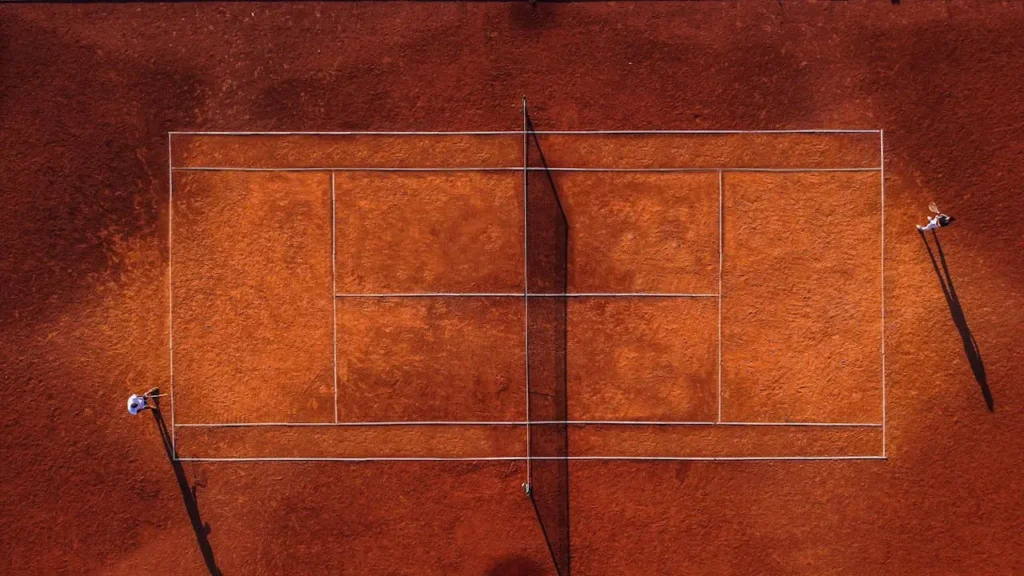Tennis is more than a game; it is a passion. It inspires individuals to improve, set new objectives, and enjoy a lifetime of gaming and competition. One way for tennis fans who desire to share their love for the game is to become coaches. Learning about the tennis coaching industry is important if you’re planning to make your affection for tennis a career.
A career in tennis coaching offers a wide range of opportunities and exciting challenges. From training young beginners at local clubs to guiding competitive athletes on a national or even international scale, it offers many doors.
Finding the right position can impact your level of satisfaction and effectiveness as a coach. The ideal position combines your professional objectives, interests, and skills with the needs of your athletes or students. What’s more, it provides a supportive setting where you can develop personally and professionally while contributing to the tennis community in a meaningful way.
I’m sure you’re curious about the tennis coaching industry. It’s important to develop your own idea by understanding the concept behind it. I’d be happy to assist you in the journey that begins with a clear understanding of training, job opportunities, and expected competencies.

Tennis coaching is a diverse field that caters to different skill levels and ages. Let’s look at what it takes to become a coach, the different types of coaching professions accessible, and the important skills and qualifications required.
There is more to coaching than simply teaching players the fundamentals of the game. It also takes inspiring tennis players, moulding their mental and physical approaches to the game, and cultivating passion and respect for tennis.
The role of a coach varies depending on the environment and the players’ goals. Some coaches focus on technique, while others emphasise strategy, physical fitness, and psychological preparation.
When exploring how to be a tennis coach, there are a variety of career paths that exist, from part-time positions at community centres to full-time roles at high-performance training academies. The following is a list of common coaching roles:
Each position requires a different set of skills and offers unique challenges and rewards, making the journey to becoming a tennis coach diverse and dynamic. Tennis coaches must have a strong foundation in the following areas:
The tennis world is continually evolving, with new coaching methodologies, technology, and trends emerging. In addition to physical training, there is a rising emphasis on holistic training programs that take into account mental health and general well-being. These changes provide interesting chances for coaches to improve their abilities and methods, which is essential for those wondering how to get into tennis coaching effectively.

Starting a tennis coaching profession is a thrilling journey that requires proper preparation – from gaining the necessary qualifications to building a resume. You may become a tennis coach at any point in your career, whether you’re a player wishing to transition or a passionate fan looking to make an impact.
Here are the basic steps to get started:
Education and certification pathways vary by country and the level of coaching you aspire to achieve. Many organisations offer nationally recognised certification programs that cover coaching techniques, player development, and the business aspects of coaching.
Continual education through workshops and seminars is also crucial, as it keeps you updated with the latest coaching trends and methods.
To succeed in tennis coaching, one must strategically showcase their skills. To create a convincing coaching profile, a tennis coach should highlight:
Coaches may showcase their skills, attract chances, and change tennis coaching by carefully curating this information.
Changing tennis coaching requires ongoing development. By staying current on developments and coaching techniques, coaches can enhance their skills and adapt to their players’ needs. Developing effective coaching techniques involves:
In addition to these, it’s also crucial to understand the importance of networking. This helps you connect with potential mentors, learn from peers, and find coaching job opportunities. Engaging in local and national tennis events, online forums, and professional organisations can expand your professional network.
As you prepare for your coaching career, remember that each step builds towards your ultimate goal of becoming a successful tennis coach.

After obtaining the necessary credentials and honing your skills, the next crucial step is to secure a coaching position that aligns with your abilities and career objectives. Here’s how you can effectively find tennis coaching jobs:
There are a lot of websites and platforms that list tennis teaching jobs. These range from general job boards like Indeed and LinkedIn to sites that only focus on sports careers. To optimise your job search:
2. Leveraging Social Media
Social media platforms are invaluable tools in your job search, enabling you to:
3. Engaging Locally
Building local strings of connections can significantly enhance your job prospects:
Participating in tennis conferences and events offers considerable benefits:
5. Volunteering and Internships
Volunteering or interning is an effective way to break into the coaching field:
By utilising these strategies, you can enhance your visibility in the employment market and increase your chances of landing a rewarding tennis coaching position.

A well-crafted application is essential for standing out in the competitive field of tennis coaching. From a compelling cover letter to a tailored resume, each component should showcase your strengths and passion for coaching. Here’s how you can create an impactful application.
Your cover letter is the first chance to make a personal connection with a potential employer. Include these essential elements:
Your resume should be concise yet detailed, emphasising the qualifications and experiences most relevant to the job:
References and testimonials are vital components of your application. They provide potential employers with third-party verification of your skills and character. Include contacts who can speak positively about your professional capabilities and personal qualities.
By properly preparing each component of your application, you increase your chances of establishing a lasting impression and moving on in the tennis coaching selection process.
The interview is a pivotal step in securing a tennis coaching job. It offers you the opportunity to make a lasting impression and demonstrate how your skills and experience align with the organisation’s needs. During this process, you can expect to face a range of questions designed to evaluate your coaching philosophy, technical knowledge, and interpersonal skills.
Example questions you might encounter include:
It’s crucial to prepare thoughtful responses to effectively convey your expertise and dedication. Demonstrating your coaching philosophy and style involves:
Additionally, asking insightful questions during the interview can demonstrate your interest in the role and help you gauge if the position is a good fit. Questions to consider asking include:
Asking these questions provides deeper insights into the working environment and the organisation’s expectations, aiding you in determining if they align with your career aspirations.
The interview is a pivotal step in securing a tennis coaching job. It offers you the opportunity to make a lasting impression and demonstrate how your skills and experience align with the organisation’s needs. During this process, you can expect to face a range of questions designed to evaluate your coaching philosophy, technical knowledge, and interpersonal skills.
Example questions you might encounter include:
It’s crucial to prepare thoughtful responses to effectively convey your expertise and dedication. Demonstrating your coaching philosophy and style involves:
Additionally, asking insightful questions during the interview can demonstrate your interest in the role and help you gauge if the position is a good fit. Questions to consider asking include:
Asking these questions provides deeper insights into the working environment and the organisation’s expectations, aiding you in determining if they align with your career aspirations.
Continuous learning and development are essential for maintaining and advancing your career as a tennis coach. Staying updated with the latest coaching techniques, industry trends, and educational opportunities not only enhances your coaching abilities but also keeps you competitive in the field.
To ensure your coaching methods remain fresh and effective, consider the following strategies:
Engaging with these resources will not only improve your coaching but also demonstrate your commitment to excellence and professional growth.
Advancing your qualifications can open doors to higher-level coaching positions and specialties. Consider pursuing:
These certifications and degrees not only bolster your resume but also equip you with the knowledge to provide superior coaching.
Networking with peers in the tennis community can provide several benefits:
Actively engaging with your professional community through conferences, associations, and social media can significantly impact your career trajectory.
Continuous professional growth ensures that you stay at the forefront of the tennis coaching industry, capable of providing the greatest results for both your players and yourself. By embracing continual learning and networking, you may establish yourself as a skilled and resourceful coach in the ever-changing world of tennis.
We’ve taken a peek at the thrilling and fulfilling path to becoming a tennis coach. Understanding the profession and earning the essential skills and qualifications, as well as drafting a standout application and negotiating your contract, are all critical steps in developing a successful coaching career.
Tennis coaching is not just about teaching the game; it’s about inspiring players, fostering a love for the sport, and contributing to the tennis community. Whether you are just starting out or looking to advance your career, continuous learning and active networking play pivotal roles in your professional development.
For those poised to take their coaching ambitions to the next level, platforms like X4coach are your gateway to success. X4coach aspires to be the next major online job platform, specifically designed to connect coaches worldwide with the finest academies. It provides a specialised network that bridges the gap between top talent and premier tennis institutions.
If you have further questions or need more resources, platforms like X4 Coach are excellent starting points for finding opportunities and connecting with the tennis community.
Whether you are a tennis coach, a padel coach, a tennis academy, or a padel academy. x4coach is here to take your coaching career to the next level or help you match with your next professional tennis or padel coach
© X4Coach 2024. All rights reserved.